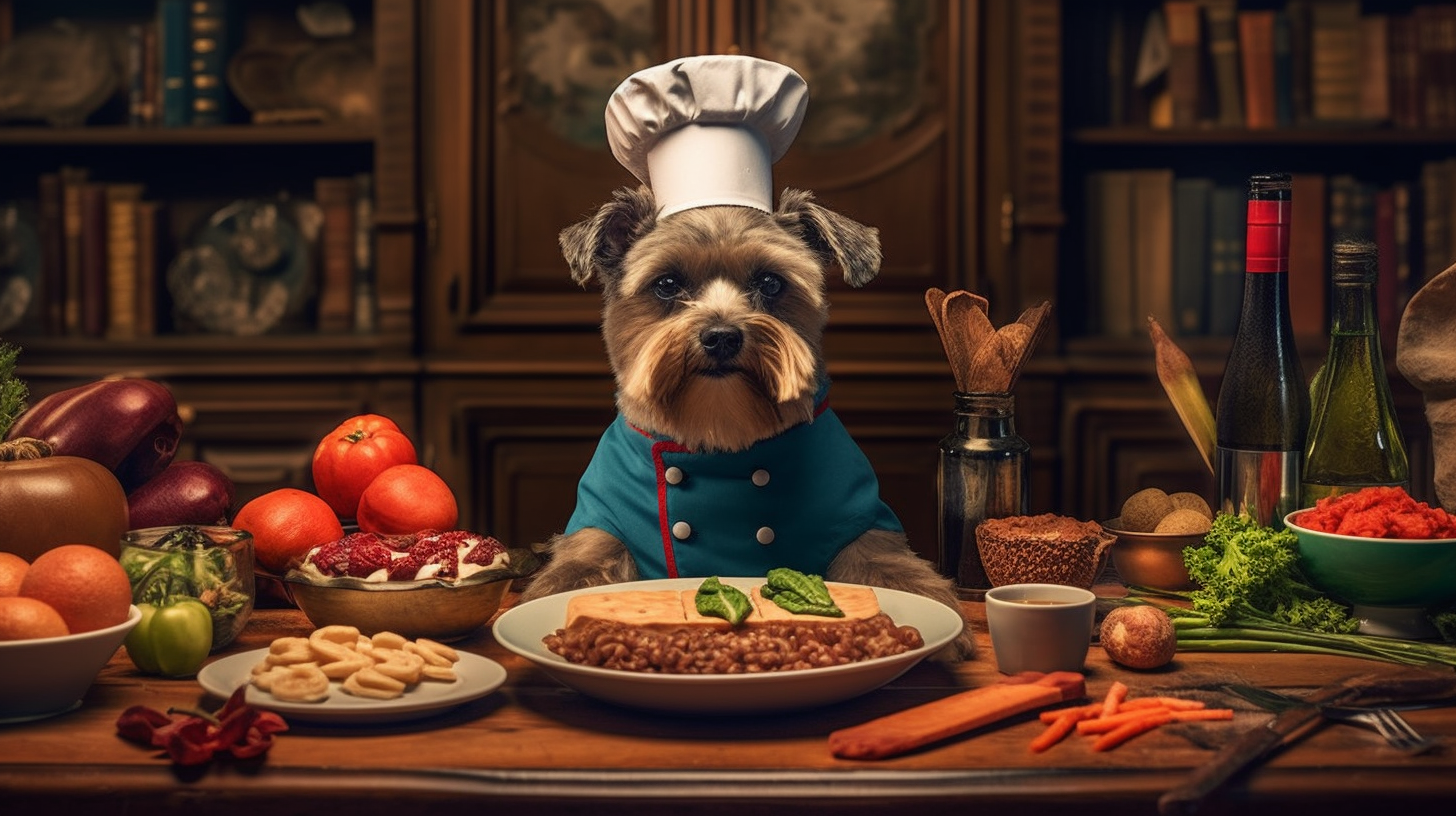Have you been trying to find the perfect diet for your beloved pet? Well, you’re in luck! We’ll explain everything you need to know about pet nutrition so you can make sure your furry friend lives a healthy and happy life. In this article, we’ll explore the essential elements of the perfect diet for your pet and provide some guidance to make sure their nutritional needs are taken care of. Let’s make pet nutrition simple and get started!
1. Introduction to Nutrition for Pets
Are you a pet parent looking to provide the best nutrition for your fur-baby? With today’s abundance of pet products and diets, it can be tempting to simply feed your pet whatever you can find quickly. But optimal nutrition is essential for long-term, healthy growth and all-around wellness. Not sure where to start? Here’s an introduction to the basics of pet nutrition!
Establishing a Diet
- Start by determining the nutritional needs of your pet based on their age, lifestyle and existing health conditions.
- Should you opt for commercial pet food, pay attention to the ingredients label and select a product appropriate for your pet’s age and size.
- Speak to your vet if you have questions or are uncertain about any of the ingredients.
Nutrient Balance
- Protein and carbohydrates form the main energy source for your pet.
- Pick a diet that includes essential amino acids, fatty acids, and vitamins & minerals.
- Fat should be fed in proper proportions with the other nutrients.
Feeding Schedule
- Feed your pet two to three times a day, about the same time each day.
- Adjust the amount of food according to your pet’s nutritional needs, size and age.
- Try to avoid snacks or treats between meals for a balanced diet.
By following a few simple guidelines, you can set your pet up for a life of good health and optimum nutrition. As a pet parent, remember that nutrition is a crucial aspect of your pet’s overall wellbeing and good health. So take the time to ensure that they receive the right diet and live a happy, healthy life!
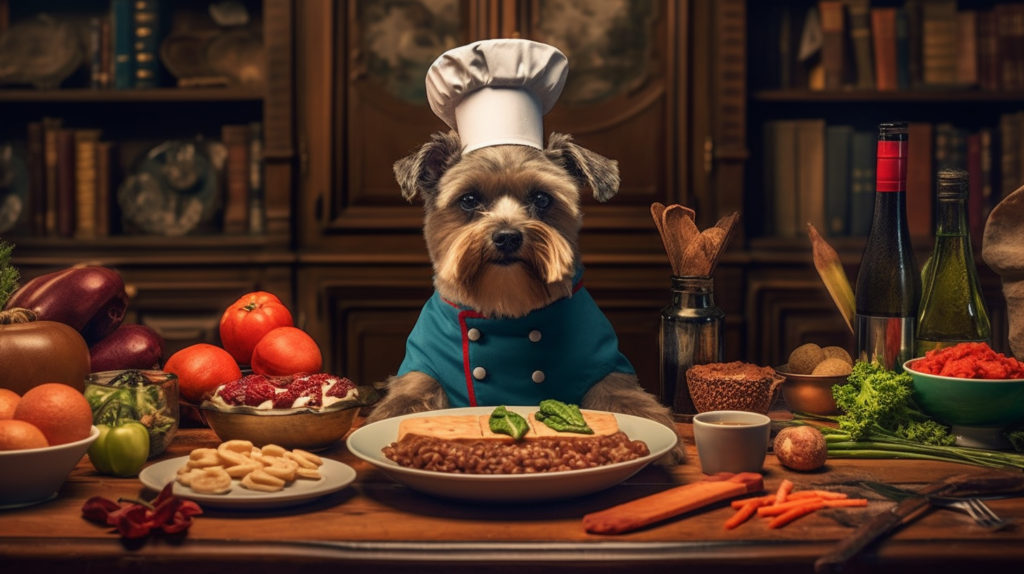
2. Identifying Nutritional Needs for Your Pet
It takes an expert to identify the nutritious diet that best suits your beloved pet’s needs. While there are some general tips that apply to all animals, ultimately an individualized assessment will give the best results. A few guidelines to keep in mind:
- Age: Puppies and kittens need food with more fat and protein to promote healthy development, while older cats and dogs need less energy-dense foods.
- Breed: Some breeds have specific dietary requirements, so it’s important to check those out before selecting food.
- Activity level: Brachycephalic (short-nosed) breeds, like Bulldogs, usually need fewer calories than a Dachshund or other more active breeds.
Different species and breeds have unique digestive systems, so it’s important to know your pet’s overall health needs. Whatever form your pet’s diet takes, cutting-edge nutrition will ensure that they stay healthy and happy for years to come. Veterinary nutritionists provide valuable advice and products tailored to individual needs, from energy-dense biscuits to homemade, refrigerated diets. It’s important to accurately weigh pet food portions and adjust the amount according to your pet’s activity throughout the day.
3. Crafting The Perfect Diet for Your Pet
Having a pet is a serious responsibility. Part of loving and caring for them is making sure they have the right diet and nutrition to stay healthy and happy. Crafting a suitable diet for your pet can seem like a daunting task, but these tips will help ensure your pet always has a full tummy.
Understand Your Pet’s Nutritional Needs
Before you plan your pet’s meal plan, there are a few important things to consider. Different pet breeds have different needs, and the diet of cats, for example, will be significantly different than that of a dog. It’s important to research the right brands for your pet and what their exact nutritional needs are. Make sure to also break down the diet into amino acids, minerals, carbohydrates, etc.
Make Feeding Time Fun
Animals need a diet that’s both healthy and enjoyable. Create a mealtime schedule and figure out how much and how often they need to eat. Pets also love variety, so try to switch up the diet and add a little something new every now and then. Mixing in different flavours and textures will keep your pet interested and make the experience of eating more pleasant.
Consult a Veterinarian
It’s always best to consult with a veterinarian if you have any concerns or questions about your pet’s diet. They’ll be able to give you valuable advice on how to create a well-rounded diet for your pet, with which foods are best and what needs to be avoided. Keep in consideration:
- Your pet’s exercise habits
- Environmental factors
- Pet’s overall health
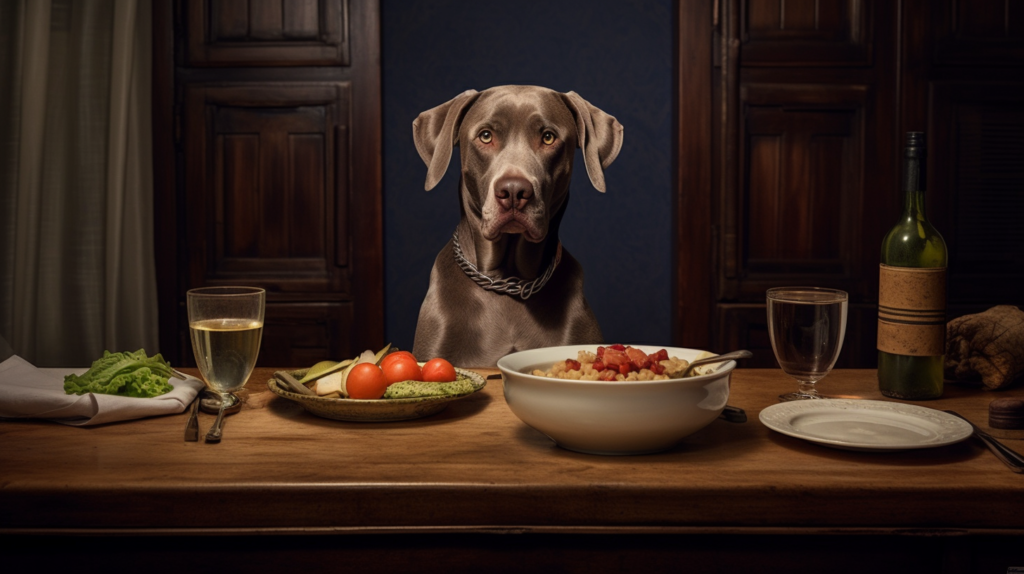
4. Balancing Your Pet’s Diet
As owners, it is our responsibility to provide balanced nutrition for our furry friends. The wrong diet can prove detrimental – it can harm their physical and mental health, make them prone to obesity and even disease. Our goal is to equip them with nutrient-rich food that provides them with sustained energy and vibrant health.
To ensure your pet’s food is balanced, assess the types of food you purchase.
- Carbohydrates: Whole grains provide sustaining energy and important vitamins and minerals, such as magnesium, phosphorus, and zinc.
- Vegetables: Rich in vitamins A, C, and K, as well as iron and fiber, veggies supply vital nutrients to your pet.
- Proteins: Protein sources such as lean meats or eggs have essential amino acids that are necessary for building and maintaining muscle tissue.
- Fats: Fats provide energy, support organ health, and blood clotting. Eating too many fatty foods, however, can lead to obesity.
takes conscious effort, but leads to big results. Your pet will benefit from the various nutrients included from the whole food sources listed above. As you create meals tailored to your pet’s needs, remember to stick to a regimen and stay aware of your pet’s behavior changes. With an adequate amount of nutrition, you can help your furry companion build a foundation for healthy, happy, long life.
5. Fondling Fruits & Veggies in Pet Diets
It’s natural to think that the phrase “fondling fruits & veggies” as it relates to pet diets doesn’t make sense. But for all pet owners out there, this is an invaluable piece of advice!
Fruits and vegetables are essential components to your pet’s diet, for several reasons. Many of them are full of vitamins, minerals, and antioxidants, and can help numerous organs and bodily functions stay healthy. They are also chock-full of good carbohydrates and fiber, which can benefit digestion and keep your pet feeling fuller for longer. And those are just the basics!
So, how can a pet owner fondle fruits & veggies when introducing them into its diet? Here are a few different strategies:
- Find fresh products: Seek out local, organic produce to help give your pet the most nutrient-dense food possible.
- Mix it up: Don’t let your pet get bored with the same food every day. Change up the types of fruits and veggies you give them, and let them explore all sorts of culinary flavors.
- Be creative: Smash up a banana, grate some carrots, blend some mango, mash-up a pumpkin—get creative with all of the goodness from nature that you can offer your pet.
Incorporating quality fruits and vegetables into your pet’s diet is definitely one of the best decisions you can make. So, showing them some love and getting your hands on some produce is a great investment in your pet’s longevity and overall quality of life.
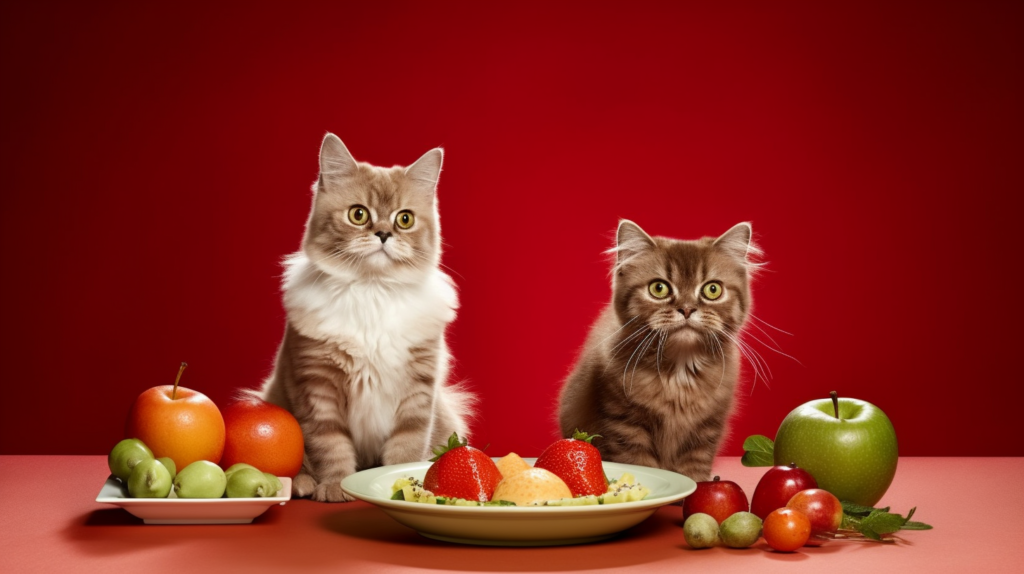
6. Identifying Healthy Protein Sources
Protein is an important macronutrient, serving as the building block for virtually every cell in the body. The key to healthy eating is to include a variety of sources of protein to get the most nutrition for the least amount of calories.
Animal protein sources: Animal proteins, such as meat, poultry, fish, and eggs, are complete proteins, meaning they provide all nine essential amino acids. Healthy animal proteins tend to be leaner cuts of meat and poultry, with as little fat as possible. Seafood, especially fatty fish such as salmon, is even better because it also has heart healthy omega-3 fatty acids.
Vegetarian and plant-based proteins: Most plant-based proteins do not contain all nine essential amino acids, so it is important to include a variety of plant proteins to get a complete complement of proteins. Some good sources include:
- Legumes – beans, lentils, split peas, and peanuts
- Grains – quinoa, wheat germ, and wild rice
- Nuts and Seeds
If you are lactose intolerant or vegan, you will still be able to get enough protein through a careful selection of plant-based proteins. Soy products such as tofu and tempeh are excellent meat substitutes, and they are also complete proteins.
7. Supplementing Your Pet’s Diet
Your pet’s diet is always important to consider in order to maintain their health and wellbeing. Adding a few extra supplements may be something you can do to take their diet to the next level. Here are some things to consider when looking for suitable supplements:
- Research first: Make sure you do your research before purchasing any supplements, ensuring you know what is in them and whether they are suitable for your pet’s diet.
- Speak to a vet: Talking to a vet about what your pet requires can be a great way to get advice tailored to your pet’s individual needs.
- Read reviews: Reading online reviews of different supplements can be a great source of information when it comes to making an informed decision.
Choosing the right supplements for your pet’s diet is a challenging task, but an important one. As you consider which supplements to offer, it is important to remember the importance of finding organic and naturally-sourced options where possible. Natural food sources are ideal when choosing supplements for your pet, as they can be trusted to contain only natural ingredients.
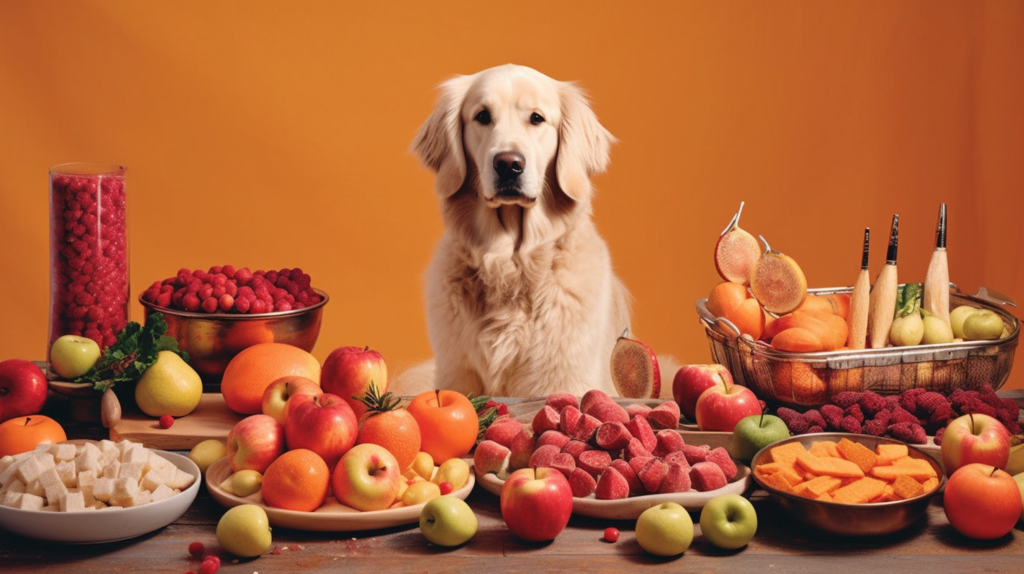
8. Wrapping Up: Nutrition & Pet Health
Maintaining good nutrition is an important part of keeping your pet healthy. Of course, feeding our pets the right things is essential for ensuring their well-being and promoting longevity. But nutrition isn’t just about what goes into your pet’s bowl. Here are some things to consider:
- Maintain a balanced diet with adequate nutrition.
- Make sure your pet is getting enough exercise, fresh air, and sunlight.
- Pay attention to what your pet is eating and how it affects them.
As pet owners, it can be easy to forget the importance of diet and nutrition in keeping our beloved animals healthy. Feeding them a balanced diet is essential for proper nutrition, and it’s important to make sure that they get enough exercise, fresh air, and sunlight. Keep an eye on their health to ensure they are getting the nutrition they need, and if you have any questions, your vet is always a great resource.
Adopting healthy eating and lifestyle habits for your pet is an important part of keeping them healthy and making them happy. Regular exercise, proper nutrition, and care will help ensure that your pet enjoys a long, healthy, and happy life.
With nutrition being a fundamental factor in the longevity and health of our pet companions, making sure they’re eating the right kind of meal doesn’t have to be complicated. Let us remember: the perfect diet is one that is tailored to your pet, whether that’s from home or from the pet food aisle. With the right diet, our four legged friends can live a long, happy life full of tail wags and wet kisses. So, make sure to fill their bowl – and your heart – with love!
